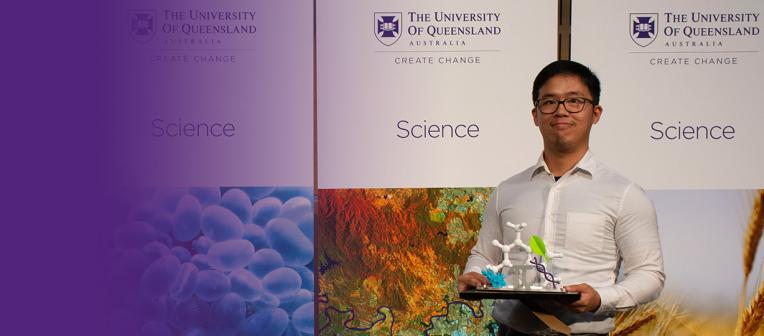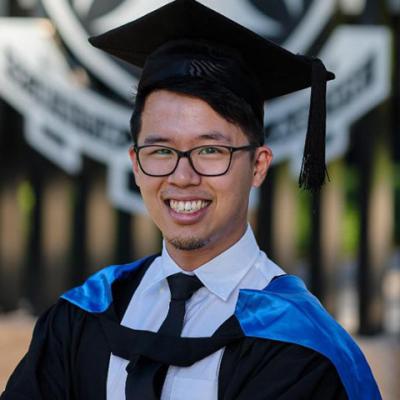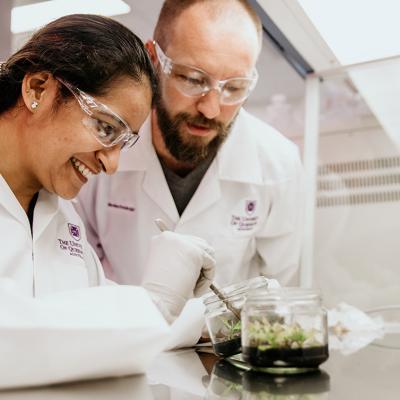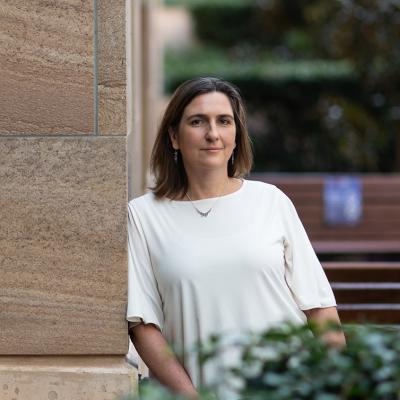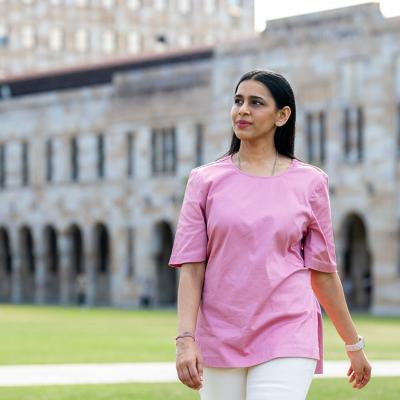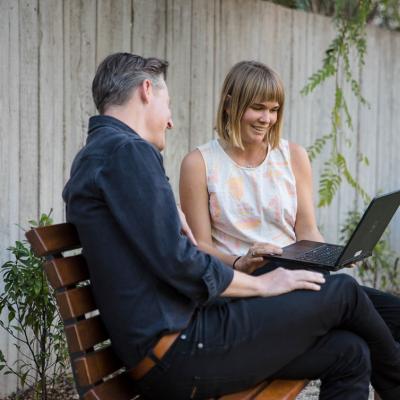Like many others, Lucas Ngo Dee had no idea biotechnology was a field with so many possibilities – until he enrolled in the Master of Biotechnology program at The University of Queensland.
Now a celebrated graduate of the program and Bioeconomy Youth Champion, Lucas understands how multi-disciplined a career path in biotechnology can be.
“I thought biotechnology was only limited to the health space, such as developing drugs, treatments or cures for diseases, or new imaging technology for diagnosis purposes, but when I looked more closely into this program, I realised it has so many applications outside of that,” he says.
“You learn about so many unexpected things, such as developing new technology in microalgae, or solar farms, or even something as off-the-wall as creating beer.”
“Better yet, you’re also learning from some of the world’s brightest and highly regarded biotechnology teachers and researchers, in a program that’s ranked #1 in Australia and #7 in the world – it’s an amazing opportunity.”
What led Lucas to the Master of Biotechnology?
Lucas’ passion for science, the development of technological solutions, and the ways it can be applied from a business and marketing perspective were what inspired him to study biotechnology at UQ.
“The master’s program is excellent because, while it focuses on the science in areas such as biology, biochemistry and straight chemistry, it couples this side of it with the entrepreneurial aspects that underpin the industry,” he says.
“I believe that’s an aspect of biotechnology that not a lot of people look at, but once I realised how collaborative and interdisciplinary it is, I definitely fell in love immediately.”
An internship and an advisory role helped Lucas pave his biotechnology career path
Throughout the master’s program, Lucas completed a hands-on internship with QIMR Berghofer Medical Research Institute, where he worked as a business development analyst.
In this role, Lucas conducted extensive market and industry analyses of commercialisation pathways for medical research projects in immunology, neuroscience, and infectious diseases, and he worked with research teams to improve the commercial potential of projects.
“Being able to complete a work placement as part of the program means students are given a high-level understanding of what’s happening at an institutional level, and so many important pieces of information can be gleaned from those experiences,” says Lucas.
“What I learned is that the process of commercialising or translating scientific research can take 3 to 5 years, which is quite slow.”
While studying, Lucas took on an advisory role with the Students Advisory Group, where he advocated for improved translation capabilities when it comes to research, a problem facing many international, non-English-speaking students and researchers.
“My experience of learning in a different culture allowed me to empathise with the problems some students faced when it came to getting the full picture of what research is out there, as well as having their research seen by people from other languages,” he says.
“The end goal for me would be to see more scientific research translated and applied into everyday life – and I think if we applied enough effort into filling this translational gap, we could make more breakthroughs in the scientific community, and turn ideas into action.”
“Without my work placement, I wouldn’t have been able to see firsthand how these processes work, but now I can work towards addressing something really meaningful in the scientific community while I continue forging my career in biotechnology.”
Interested in developing world-changing solutions for some of the world’s most pressing issues? UQ’s Master of Biotechnology can take you there.

